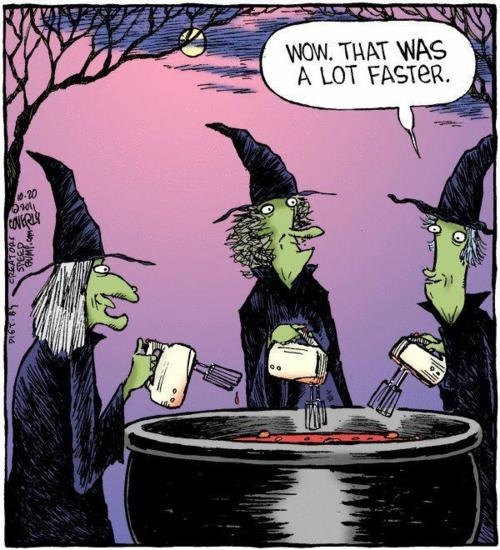mahek320
22K posts
Don't wanna be here? Send us removal request.
Text
Depression To Dementia?
With the Covid pandemic encompassing the entire world these past two years, it has become very clear that it has had many negative impacts on everyone's lives. Besides the very obvious ones, one of the key effects of it has been a significant increase in cases of depression. In today's day and age, it seems like depression has almost been normalized. However, what many people do not realize is that depression often comes hand in hand with other mental illnesses, whether it be a symptom of them or simply accompany them. One of these mental illnesses may very well be dementia, a little nerve-wracking right?
But why? Well, there are a few possibilities as to how both depression and dementia may be linked. The first possibility is that depression is just simply a risk in developing dementia, just as certain foods and toxins create a risk of developing cancer. Another possibility is that depression is an actual symptom of dementia, pointing to its eventual onset. And the last possibility is that it is purely coincidental. To help support the thesis that depression may lead to dementia, a study was conducted over several years with Danish men with or without depression to truly understand if there really is a link between the two.
The way the study went about it was first to collect history of the patient's depression up until age 55. It was collected through primary and secondary diagnoses (ie. a diagnosis by a doctor vs. data on antidepressants). There were 3 main categories of depression within the patients: No history of depression, depression identified via medication, and depression identified via hospitalization. The severity was determined through the amount of the prescriptions along with the number of hospitalizations. After this process, the data on the men with dementia was collected. Again, the data was collected through primary and secondary diagnoses just as with depression. With all of this data, the study also identified potential confounders that could explain the link between depression and dementia, which they made sure to include in the analysis.
So what actually was the analysis and did it identify a true correlation? Well, four models of Cox proportional hazards regression, which is a “method for investigating the effect of several variables upon the time a specified event takes to happen”, in which the first model had no adjustments, the second model adjusted for social factors,, the third model adjusted for diseases, and the fourth model adjusted for addiction. Along with this, five supplementary analyses were conducted. The first took into account height and weight, the second was a sensitivity analysis which had more restrictions in reference to the temporality between measures of depression and dementia, the third only accounted to men with a psychiatric diagnosis, the fourth excluded men who were diagnosed/identified via medication, and the fifth used a propensity score to even the sample sizes of men with no depression vs men with hospitalization due to depression.
The results supported the link. Men without depression only had 1.2 cases of dementia per 1000 people, 2.1 for men on medication, and 3.6 for men who had been hospitalized. So, this means that the risk of dementia was highest among men with the highest level of depression. In each of the four models with their adjustments, it was found that men who were hospitalized had higher cases of dementia within the population than men who were simply on anti-depressants, and both were higher than men without depression. However, there was one key difference between both of these situations. Although those who were hospitalized had a higher risk of developing dementia, the amount of times they were hospitalized had no significant link to it. On the other hand, those who took more prescribed medications did show a higher association to developing dementia. So, although hospitalizations are more closely linked with the possibility of developing dementia, the number of times had no significance, whereas, although people who were on medications were less likely to develop dementia, the amount of medications they took did affect the risk level.

So now all that is left to identify is why depression and dementia are actually linked. Again, there could be a few possible explanations as stated before. One reason could be that both depression and dementia share the same developmental traits (pathogenesis), such as inflammation. Because they share several of these traits, it is a strong possibility that they have a close link to each other. Along with this, another factor might be telomere length. A telomere is a DNA sequence located at the end of a chromosome and a study found that shorter telomeres may be a risk factor for developing depression as well as a significant risk of developing dementia as well. Besides these two possibilities, there may very well be different correlations between depression and dementia such as smoking, obesity, poor health, etc.
So where do we go from here? This study is only the beginning of our knowledge of the link between depression and dementia. Although it did not dive into it, it is also highly possible that depression could contribute to different subcategories of dementia, however, this requires conducting more studies and research. Similarly, it is also possible that different categories of depression have a different contribution to the risk of dementia within a person. For example, atypical depression has a close link to people with obesity, higher inflammation, and other health complications, therefore it could be predicted that this specific type of depression could lead to vascular dementia versus other forms of dementia. There is still a lot that is unknown about this topic as the correlation was discovered recently but as time goes on, more studies and research will help to make the how and why more clear.
At the end of the day, it is absolutely true that depression is a very clear risk factor in the development of dementia. The details may be unknown, but an earlier diagnosis of depression may be key to reducing the risk of one getting dementia. There is plenty more research to be done but that does not mean action cannot be taken to help with these mental illnesses.
10 notes
·
View notes
Text

when a crime is committed, it is not the victim’s fault
88K notes
·
View notes
Text
told my mom i wanna drop out of uni and marry rich and she said “what rich guy would wanna marry u” she right

93K notes
·
View notes
Text
you come to my house. you see this.

“oh? you have kids?” “No” i reply. “…rabbits?” “No,” again I reply. you look closer. inside is a roomba. ‘its almost time to feed him!’ i say. your eyes ask a handful of questions, but you remain silent. i sprinkle a handful of dirt in the enclosure.
252K notes
·
View notes
Text
what you say: tru
what I hear: True Jackson VP was filmed in front of a live studio audience
192K notes
·
View notes
Photo


Twitter has a 140 character limit, yet I still found a way to tell one of the longest and most obnoxious knock-knock jokes of all time within a single tweet.
I am more proud of this accomplishment than any human right has the right to be.
230K notes
·
View notes



















